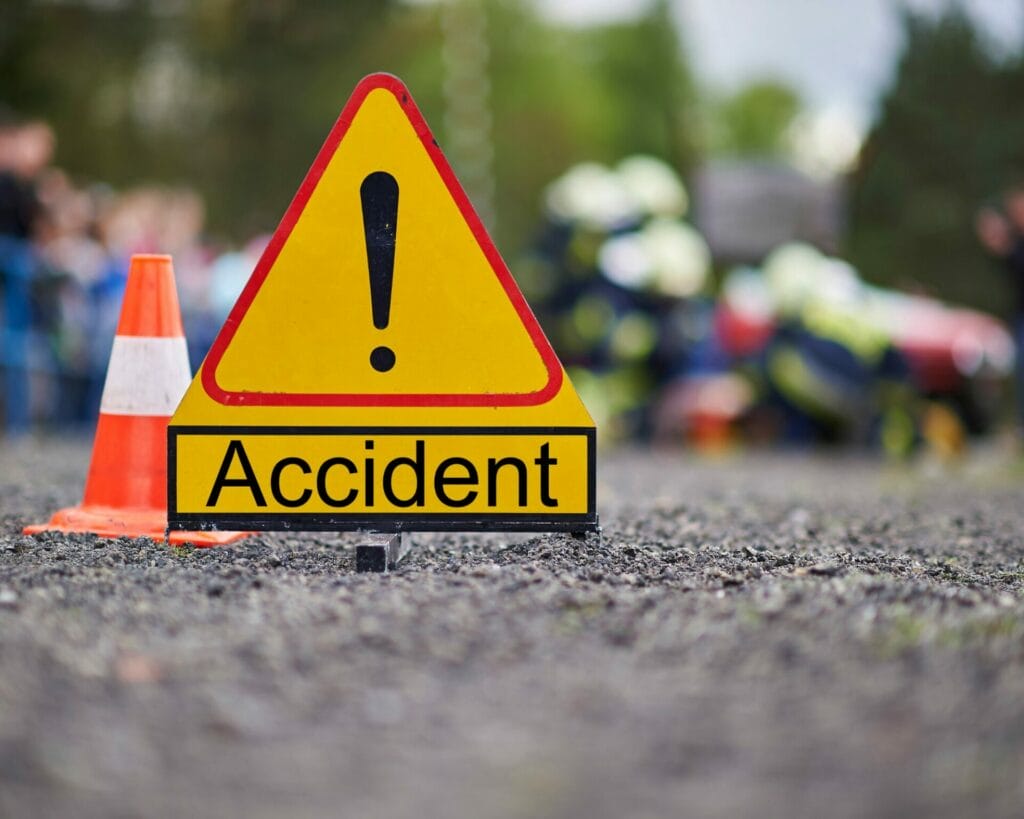Key Steps to Take After a Motorcycle Accident
If you’ve recently experienced a motorcycle accident you’re likely overwhelmed with questions and concerns. It’s a challenging time and knowing the right steps to take is crucial. We have created a motorcycle accident guide you can follow immediately after a collision.
In this blog we will guide you through the post-accident process, offering advice on seeking medical care, gathering evidence, and connecting with the right legal assistance to help you recover and secure the compensation you deserve.
Legal and Medical Steps to Follow After a Motorcycle Accident
Experiencing a motorcycle accident can be a daunting and traumatic event, but knowing the right course of action to take in the aftermath is crucial. In this section, we’ll outline a series of essential steps that an individual should follow after being involved in a motorcycle accident. This motorcycle accident guide is designed to ensure personal safety, gather vital information, and set the groundwork for potential legal and insurance processes.
1. Assessing Injuries: A Vital Step on this Motorcycle Accident Guide
- The first step that one should take after a motorcycle accident is to assess themselves for any injuries. Due to the heightened vulnerability of motorcyclists to severe injuries, this self-assessment is paramount. It involves a careful examination of the body for any signs of pain, discomfort, or visible wounds. Not all injuries may be immediately apparent, which makes this step even more critical.
- Upon impact, adrenaline may mask pain and shock can temporarily obscure the severity of injuries. As such, it is vital for the individual to take a moment to assess themselves. Begin by checking for head trauma then the neck, back, and limbs, as these areas are most prone to injury in a motorcycle accident. Even minor discomfort should not be dismissed, as it could indicate underlying issues.
2. Calling 911:
- In cases involving injuries or significant damage resulting from a motorcycle accident, it is absolutely crucial to call 911 immediately. This step ensures a swift response from emergency services, which plays a fundamental role in ensuring the individual’s well-being and safety in the aftermath of the collision.
- The importance of calling 911 cannot be overstated. It initiates the rapid arrival of paramedics and law enforcement to the scene. Paramedics can provide immediate medical care, while police officers can begin documenting the incident. This call can be a lifesaver, as it makes sure that the injured individual receives the attention they need as soon as possible.
3. Seeking Medical Attention:
- Regardless of the perceived severity of injuries, seeking medical attention after a motorcycle accident is always recommended. This is because some injuries may not manifest immediately. Therefore, undergoing a comprehensive medical evaluation is essential to identify any latent injuries that may surface later on.
- Motorcycle accidents can result in a wide range of injuries, from minor cuts and bruises to more severe, internal injuries. The human body’s adrenaline response can sometimes mask pain or discomfort, making it difficult to assess the extent of injuries without a thorough medical examination. A medical evaluation not only ensures the individual’s well-being but also creates a medical record of injuries, which can be crucial for future insurance claims or legal actions.
4. Exchanging Information with the Driver:
- To protect one’s interests and facilitate potential future claims, it’s essential to exchange contact and insurance information with the other party involved in the accident. This step ensures that accurate and comprehensive information is collected for future reference.
- When exchanging information, it is important to be thorough and accurate. Exchange names, contact details, driver’s license information, insurance details, and vehicle information. This information will be invaluable when dealing with insurance companies and legal proceedings.
5. Documenting the Accident:
- Documenting the accident scene through photographs is crucial, as it serves as valuable evidence in any potential legal proceedings. This documentation should include details such as the positions of vehicles, road conditions, traffic signs, and any visible injuries.
- When taking photographs be sure to use a smartphone or camera to capture the accident scene comprehensively. Include images of all vehicles involved, their positions, any skid marks, road conditions, weather conditions, traffic signs, and any visible injuries. These photographs can provide essential evidence to support any future claims.
6. Interviewing Witnesses:
- In this motorcycle accident guide we highly recommend that If there were witnesses to the accident, it’s advisable to engage with them and gather their accounts of the incident. Witness statements can be significant in corroborating the individual’s version of events and strengthening their case.
- Witnesses can provide an unbiased perspective on the accident. Ask for their contact information, as it may be necessary to have them provide statements in the event of a legal dispute. Their observations and accounts can help establish the sequence of events and the factors leading to the accident.
7. Providing a Statement to the Police:
- Cooperating with law enforcement officers responding to the scene is crucial. Providing an accurate and factual account of the incident is important so that an accurate police report is generated. This report can have a substantial impact on the investigation and any subsequent legal proceedings.
- When speaking to the police, it is important to stick to the facts and avoid speculation. Offer a clear and concise account of the events as you remember them. Your statement will become part of the official accident report and its accuracy is paramount for any legal proceedings.
8. Reporting the Accident to the Insurance Company: The Post-Accident Process
- Promptly reporting the accident to the insurance company is a pivotal step in initiating the claims process. It’s essential to provide accurate and complete information to expedite the claims process and ensure that the individual receives the coverage they are entitled to.
- When reporting the accident to the insurance company, be sure to provide all necessary details and documentation. This includes the other driver’s information, police reports, medical records, and photographic evidence. The timely and accurate reporting of the motorcycle accident is essential to ensure that the claims process moves forward without delays.
This motorcycle collision guide, when followed diligently, can help individuals navigate the challenging aftermath of a motorcycle accident, maintaining their safety, preserving critical evidence, and laying the groundwork for any necessary legal or insurance actions. In the face of such a challenging situation, taking these steps can make a significant difference in the individual’s ability to recover and seek justice.
Getting the right legal representation is vital in ensuring that your rights are protected. Whether it’s dealing with insurance companies or pursuing a legal case, The Mike Hostilo Law Firm can provide the support and guidance you need.
Recovering from a motorcycle accident can be a challenging journey, but with the right steps you can seek justice and rightful compensation. Remember, we’re here to help with all types of cases, providing you with the assistance and guidance you need.
So, if you or someone you know is in need of legal support after a motorcycle collision, don’t hesitate to reach out to The Mike Hostilo Law Firm. We’re dedicated to helping you navigate the legal process.
Remember, when it comes to your recovery and seeking justice, you don’t have to face it alone. The Mike Hostilo Law Firm is here to lend a helping hand. Get in touch with us today and take the first step toward your road to recovery.

